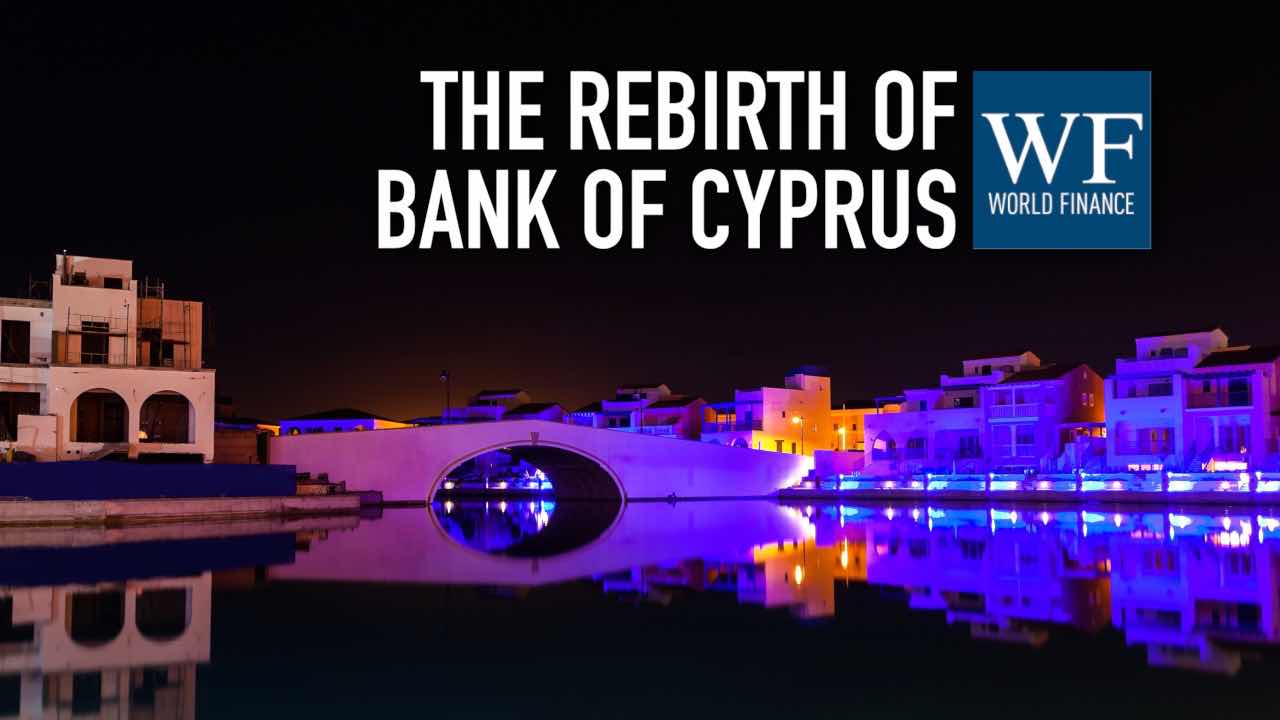Bank of Cyprus not afraid to forgo profits in financial crime clean-up
"We're not afraid to say that we've shut down relationships" in pursuing stringent ethical rules, explains the bank's compliance director
Related:
Transcript
In the first half of our interview with Marios Skandalis, he described Bank of Cyprus’ four year journey from a public bail-in requiring depositors to take a 50 percent haircut, to repaying its emergency liquidity assistance and listing on the London Stock Exchange. One of the key aspects of its compliance transformation along the way was aggressively tackling money laundering – in this second video he explains why the bank isn’t afraid to be open about the efforts it’s gone to, in order to meet stringent ethical standards. And he explains the compliance challenges his team is facing as the bank becomes a fully digitised financial institution.
World Finance: I’m with Marios Skandalis, Bank of Cyprus’ compliance director, and we’re discussing the bank’s compliance transformation since 2013. One of the key aspects of this was stepping up to aggressively tackle money laundering; tell me more.
Marios Skandalis: Yes indeed; our bank has aggressively engaged in a clean-up campaign under the most stringent ethical rules. During the past three years our bank has terminated 30 percent of its international clientele, more than 5,000 accounts were shut down, corresponding to more than €10m of annual net profitability.
We have also terminated 80 percent of our relationships with our professional intermediaries, from 1,600 we’re only left with 300 such relationships at the moment.
Although a hard path to follow, and harsh measures to apply, our bank has won Best Corporate Governance institution by World Finance for two consecutive years. Our bank has also won the 2016 award by Transparency International for adopting the best anti-corruption and transparency measures. It has also won the award of Bank of the Year for 2017 by Corporate Insider. And our bank is today the only financial institution in Cyprus that for two consecutive years were members of the Business Integrity Forum of Transparency International.
World Finance: It seems quite rare for a bank to be so honest and transparent about the efforts that it’s taking to tackle financial crime?
Marios Skandalis: This exactly, Paul. We’re not ashamed and we’re not afraid to say that we’ve shut down relationships. We’re not afraid to tell our investors that we’ve foregone tens of millions of profitability. Because we consider this foregone profitability to be an investment for the future: higher returns, and more robust returns.
World Finance: And what does the future hold for Bank of Cyprus?
Marios Skandalis: Our prime objective is our commitment to this new culture, to this new path that we’ve successfully applied over the last four years. But at the same time we would like to offer more to our customers, to our most important external stakeholders, by improving and enhancing our services to them.
Our bank has recently collaborated with IBM in a multi-million euro project, leading to a full digitisation of our bank over the next five years. This enhancement of our customer service and product excellence sets our bank as the undisputed leader in the south-eastern European region.
With this digitisation process, basically we’re trying not only to apply completely paperless relationships with our customers, but offer the ease to our customers to perform their banking affairs, either from their home or their mobile device or by visiting the branch, in the most appropriate way to them.
At the moment there are no other institutions that have taken such an aggressive strategic decision to fully digitise their operations. But we consider that unless institutions take this step forward, there is no future for those institutions in the short to medium-term.
World Finance: What does this kind of process present in terms of challenges for your compliance function?
Marios Skandalis: The challenges are quite high, because fully digitising a financial institution obviously creates new means of doing business and opening new gateways for customers to engage with our institution.
Therefore what we need to be is to be vigilant, to participate, review every possible new gateway that we open to our customers and new policies and services that we are offering to them; and make sure that the principles of compliance apply there as well.
Compliance is not a business-preventing mechanism to an institution. On the contrary, it is a business facilitator, to ensure our stakeholders receive a robust return and they don’t just receive any return which will take them into very risky paths of losing everything at the end of the day.
World Finance: Marios, thank you very much!
Marios Skandalis: Thank you too.

 How Bank of Cyprus came back from its bail-in to listing in London
How Bank of Cyprus came back from its bail-in to listing in London
